Using an IBM Model M in the current year
Table of Contents
A colleague of mine brought a model M to the office a few years ago. The sound and feeling of that keyboard always stuck with me, and when I was setting up my work from home setup I decided to get one for myself. The board is really nice to type on, but it takes some effort getting it to work on modern hardware. This particular board was made in 1991.
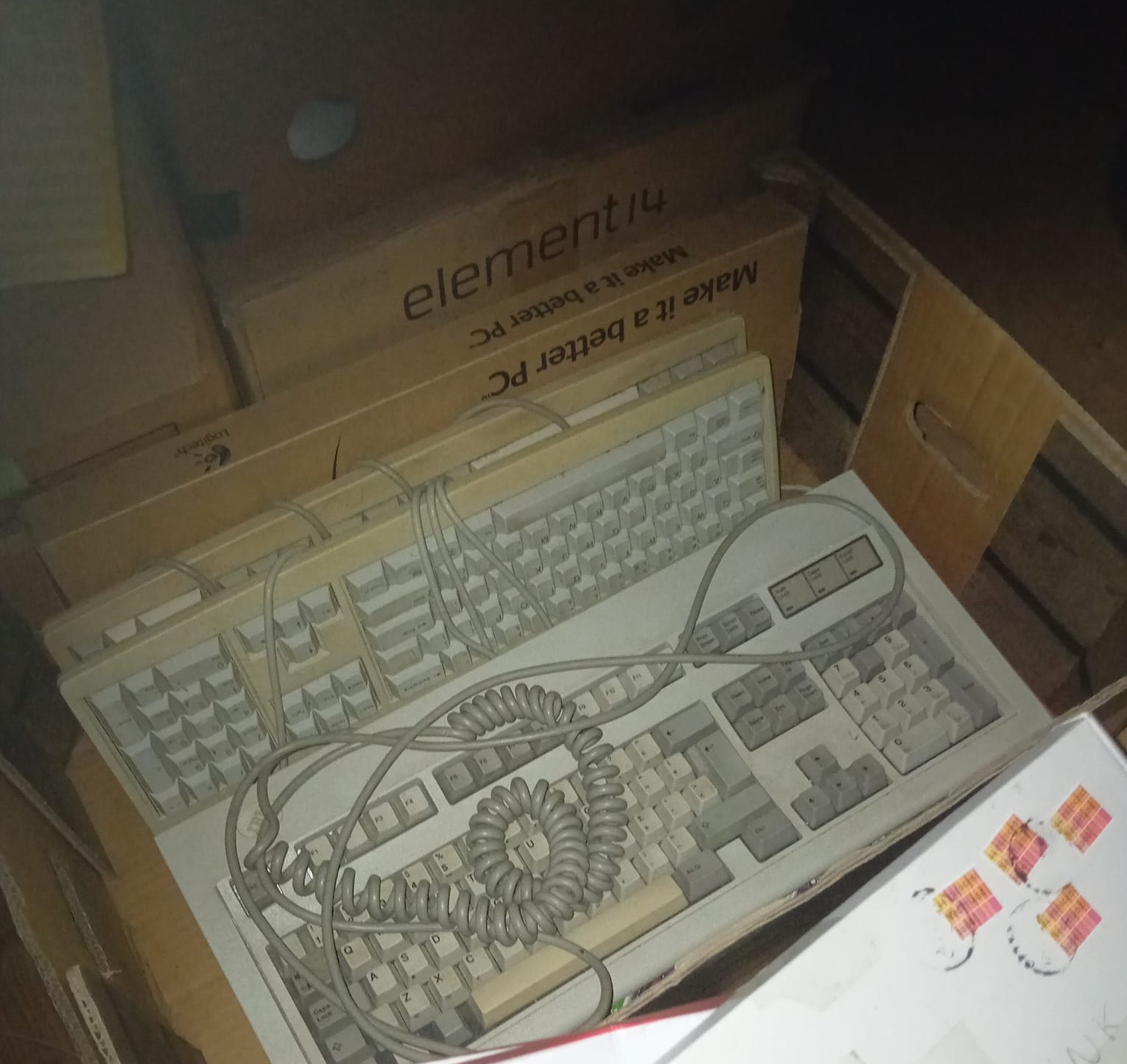
My brother in law still had one laying around in his attic.
The layout, keys and caps
You can take off the keycaps easily, and clean them with some water and soap. You can also switch them around to get a different layout. The layout that was used in the Netherlands a lot when this board was built is the ISO layout. The Enter key is tall and narrow, and the left Shift key is shorter to make room for an extra key. I prefer the ANSI layout for programming, and it’s also almost exclusively used in the Netherlands now. The location of the special characters is the most notable difference that makes the ISO layout almost unusable for me.
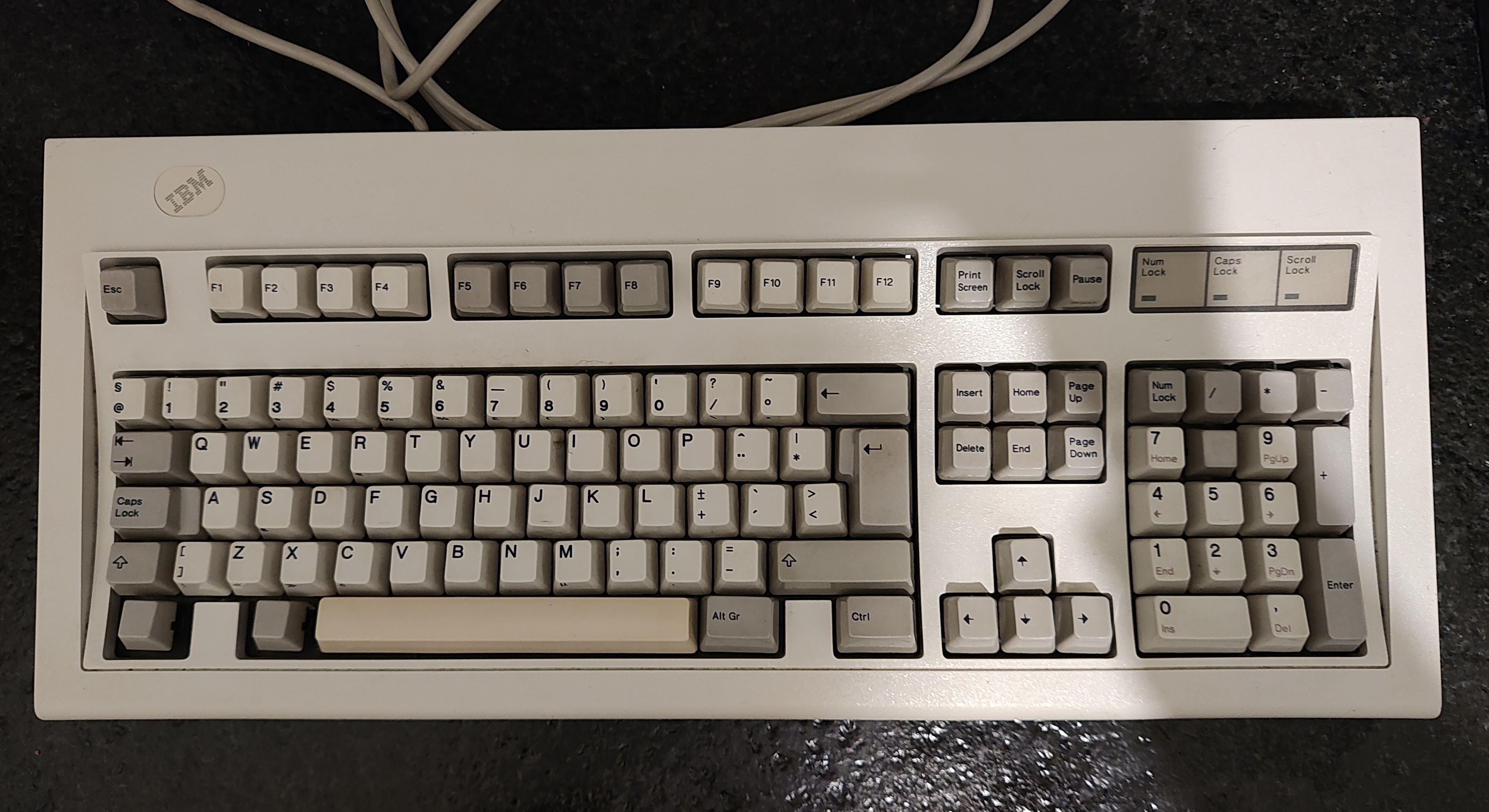
The Model M after cleaning. Note the ISO layout, and missing keycaps
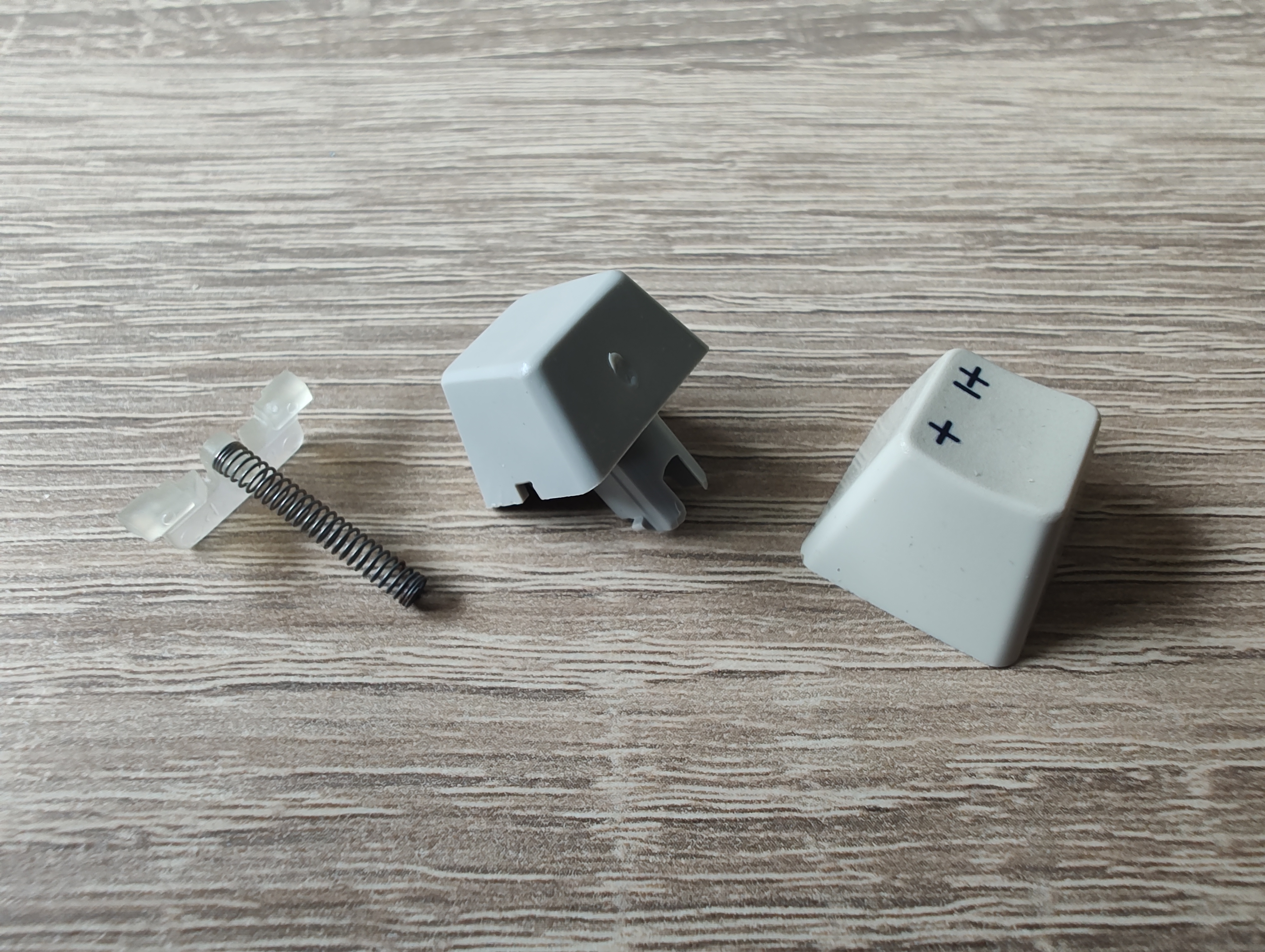
From left to right the buckling spring, the key, and the keycap.
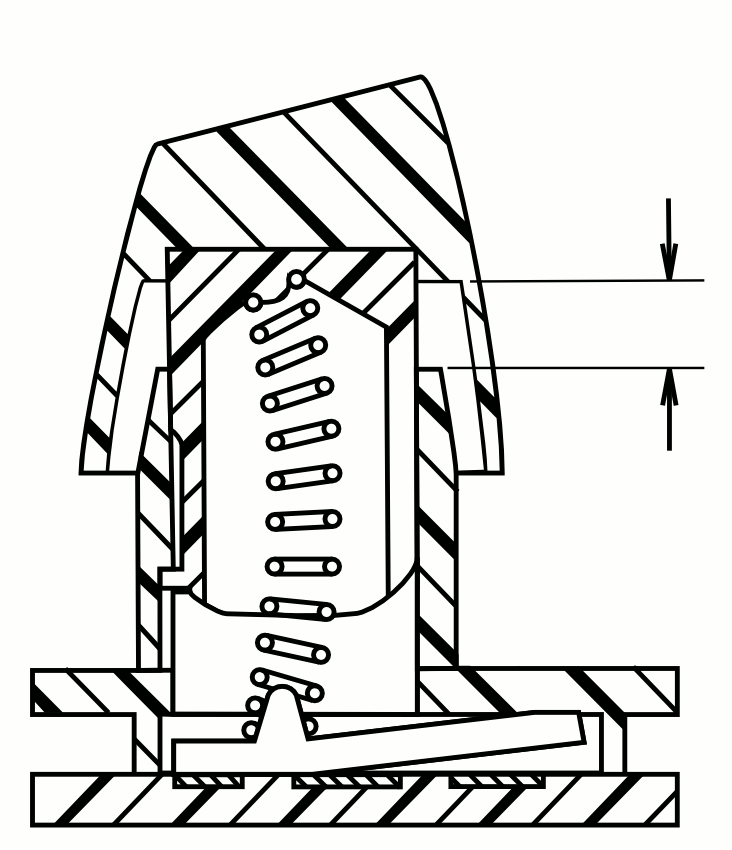
The buckling spring mechanism which makes this so satisfying to type on
Connecting to a modern computer
To connect the board to a modern computer you need a USB to PS/2 adapter. The keyboard uses a PS/2 connector. From my colleague I learned that not all USB to PS/2 adapters work. The keyboard needs an active adapter, not a passive one.
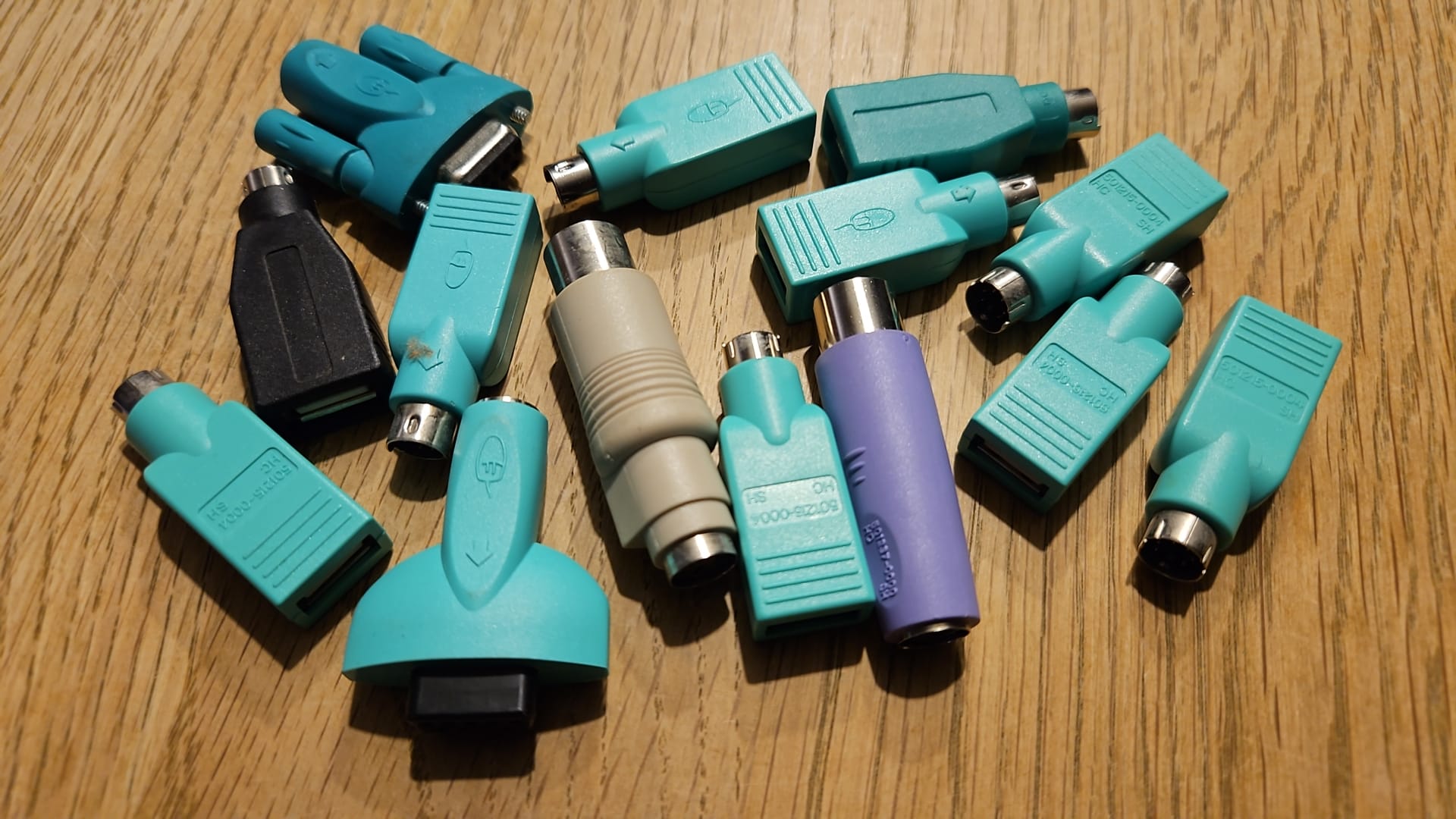
Some USB to PS/2 adapters that my family still had laying around that will not work.
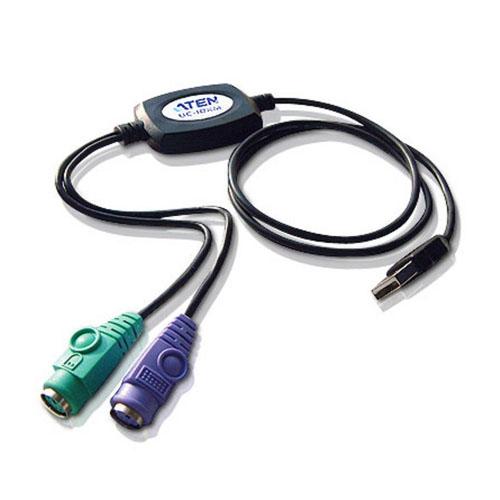
The USB to PS/2 adapter I used. This one costs around €20
Missing keys
The Model M does not have the Windows/super key and the menu key. You can use something like autohotkey to remap keys on Windows. I use my windows key a lot, so I remapped the Caps Lock key to be a second left Windows key. This solution is not perfect, when connecting to a remote desktop session the remapping sometimes changes the capslock state instead of sending a windows key. But it works most of the time.
Using it
The keyboard is really nice to type on. The sound is very satisfying. Especially when typing commands on a terminal it’s fun to slap in the command and hit enter
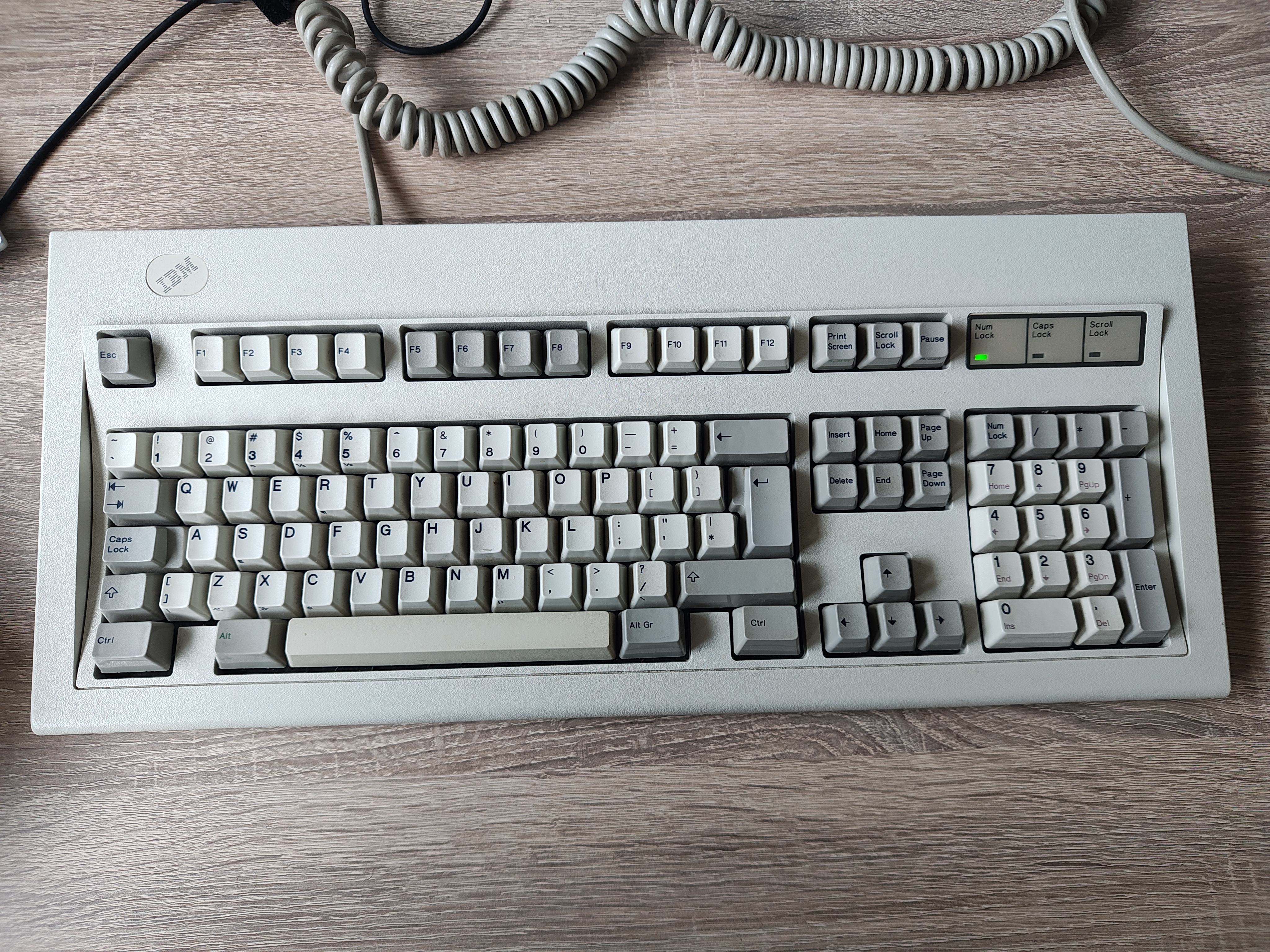
The Model M on my desk. Note the hybrid ISO/ANSI layout.